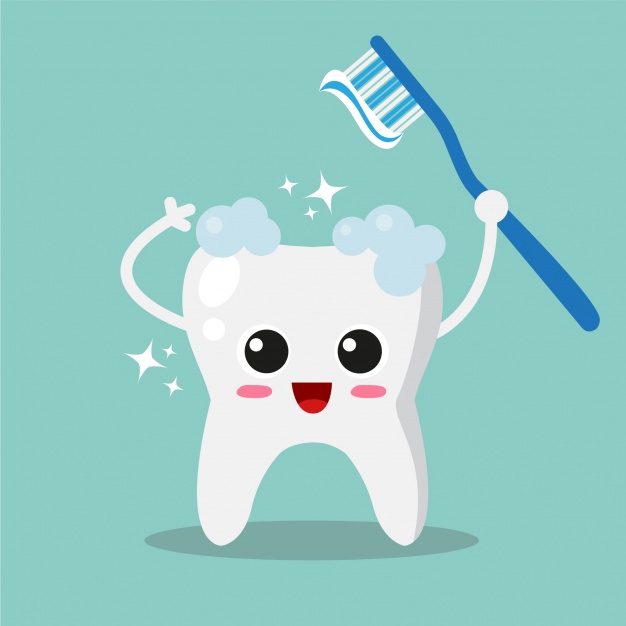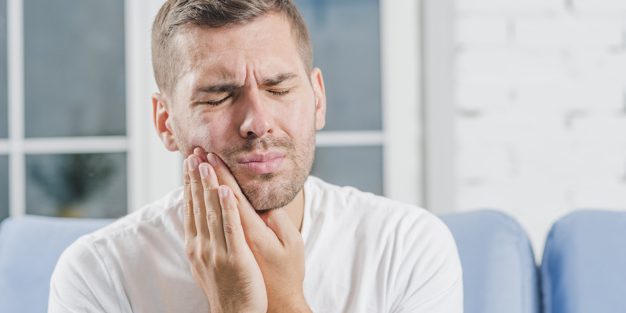The sensitivity of tooth is the most common complaint heard from a patient in dental clinics. Sensitivity gives great discomfort and pain in the teeth. At least 6 out of 10 adults are suffering from teeth sensitivity problem. The associated pain is usually sudden in onset and sharp impinging in nature. Though it is temporary, it causes a lot of grief and discomfort to the patients. There is no relative or specific age group that shows or is associated with sensitive teeth.
Why do people have sensitive teeth?
The tooth is the hardest structure in the human body. It is covered with enamel which is harder than bone. Enamel provides a protective covering to the crown portion of the tooth or the part of the tooth that can be seen in the oral cavity. Beneath enamel, there are two layers (Dentine and pulp). The other two layers are sensitive to heat, cold and sweet. Enamel does not have any nerve interventions, thus forming a protective layer.
Once there is loss of enamel due to attrition, abrasion, fracture, decay or other means. The patient will experience sensitivity. Other means can be due to the usage of a toothpick which in turn may cause gum injuries, use of dental floss, use of drugs that cause gum swelling, poor oral hygiene maintenance, gingival recession due to old age, habitual gum recession (usage of tobacco products) and etc.

Attrition of tooth can be attributed to two factors
- Deep bite
- Bruxism or habitual grinding of teeth
Deep bite is a condition where the upper front teeth cover the lower front teeth thereby exerting excessive pressure resulting in loss of enamel which leads to sensitivity. Bruxism is a habit which is due to excessive grinding of teeth, even when the person is not having any food, the person grinds his or her teeth and thus continuous friction of teeth results in enamel loss.
Abrasion is also a cause for loss of enamel but it is caused due to external factors such as excessive brushing causing cervical abrasion and people who have regurgitation show abrasion on the inner surface of the tooth, excessive usage of toothpicks and floss also cause abrasions. All these factors lead to the discontinuity of enamel causing sensitive teeth.
In a few cases when a person chews or bites on something hard, there may be a fracture of the part of tooth structure which makes the tooth devoid of enamel and exposes dentine that may lead to sensitivity. The decay of teeth is the most common complaint of the patient, during the decay of teeth; there are enamel and dentine loss which results in the unveiling of dentine and pulp causing sensitivity of teeth.
Preventive measures to avoid sensitive teeth:
- Usage of soft bristled toothbrush
- Avoid brushing of teeth for longer time
- Maintenance of oral hygiene
- Proper usage of teeth cleaning tools
- Precise use of dental utensils (toothpicks, floss, inter-dental brush and etc.)
- Don’t brush too hard
- Learn proper Technique of brushing
Soft bristles toothbrush use in one of the inhibitory or prophylactic methods to avoid sensitivity. One has to select a proper toothbrush which is delicate enough to clean the teeth and not injure the teeth at the same time. The toothbrush must have soft or extra soft bristles and must be gentle on the teeth.
Brushing of teeth for a long time is a good idea to have good oral hygiene? NO, it’s a bad idea. Brushing for two minutes in a proper manner which enables oneself to remove all the plaque and food debris from the mouth is sufficient. You have to make sure that all the tooth surfaces are cleaned properly. Even if you brush for 10 – 15 minutes a proper technique is important. If there are flaws in your technique you may leave behind the bacteria that may, in turn, lead to gingivitis or periodontitis.

Brush for minimal time i.e. 2 minutes with precise technique cleaning all the tooth surfaces. People often wonder about their smile and oral hygiene. If one has good oral health, the likelihood of teeth related problems is reduced. Proper maintenance with regular dentist visits will allow individuals to maintain and preserve oral hygiene. Thus avoiding any gum or teeth related problems.
To maintain oral health, proper dental tools or gadgets available such as dental floss, toothpicks, interdental brush, and mouth wash can be used. These gadgets must be used with absolute precision as they can not only maintain good oral health but also cause more damage to the teeth or gums.
Hence one must be able to master or learn the proper technique to use the dental gadgets which aid in the maintenance of oral hygiene. Cleaning of teeth is a daily routine to all individuals, but it must be done with care using proper technique and the right amount of force. Brushing hard will damage the gums and teeth. A good technique and proper amount of force ensure good oral hygiene of one individual.

